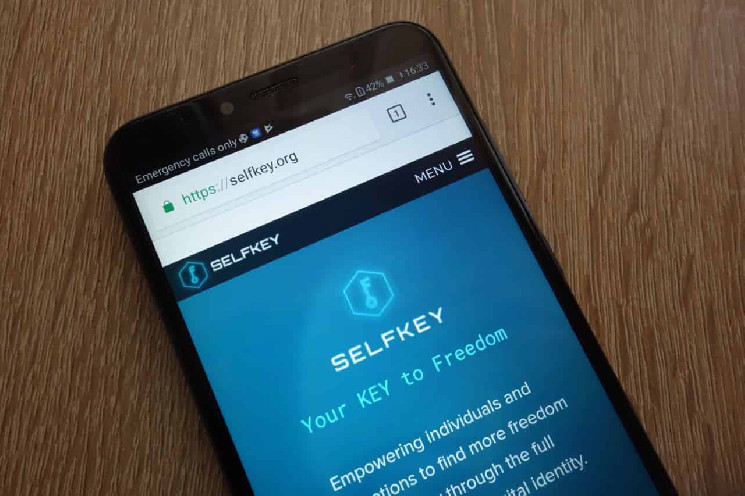Blockchain
A new whitepaper covering KYC solutions with features enabled by artificial intelligence (AI) and Zero-knowledge (zk) verifications has now been published by the self-sovereign identification service SelfKey.
To prevent identity theft, merchants will soon have access to a KYC-Chain-powered artificial intelligence solution and zk-based features used in blockchain systems, according to information shared with Finbold on March 9.
Hey there, friends! ???? We’re thrilled to remind you of the release of our latest DAO Whitepaper. Join us as we celebrate this milestone and continue to explore the possibilities of DAOs in the digital age. ???????????? #SelfKey #DAOs #Whitepaper pic.twitter.com/IIoX24xgox
— SelfKey (@SelfKey) March 9, 2023
Zk verifications provide a way to check the veracity of data without revealing it. They are widely employed in blockchain systems because they allow parties to transact without disclosing potentially damaging financial information like account balances. SelfKey’s zero-knowledge KYC solution employs the same technology for verification reasons.
Merchants are relieved of pressures of data storage
SelfKey’s zk solution lets vendors carry out necessary KYC checks without having to store users’ personal data. Platforms are relieved of the responsibility and security risk associated with storing private information like client selfies and ID document scans. Users can be certain that their information is not being collected and kept in one single location across all of their favorite platforms.
In line with the expansion of SelfKey’s digital identification service came the creation of a zero-knowledge KYC solution. Artificial intelligence has been used to increase precision and decrease fraud as part of these efforts. This method, when combined with SelfKey’s Proof of Individuality (POI) solution, may foil AI-generated phony identities that fool many online verification systems into thinking they are real people.
SelfKey’s upgraded KYC solution was created in response to widespread industry concerns from vendors struggling with user verification in the era of AI. Artificial intelligence has progressed to the point that passing KYC checks using computer-generated selfies taken from persons who do not exist is pretty straightforward. This creates the possibility for fraudsters to commit financial crimes while remaining anonymous.
SelfKey to combat the rise of AI
SelkKey’s approach will battle AI using the same technology that is being used to prevent the increase of AI use for malicious ends. The solution, which will be integrated into SelfKey’s POI system, will employ AI to confirm that network users are the same people who first signed up. This would prevent the usage of wallet reselling, which has previously been difficult for platforms to prohibit.
SelfKey’s AI has been taught to detect alterations in face composition between the user’s first KYC and the photograph used to re-authenticate. According to SelfKey’s research, the technique has broader implications in the sphere of digital identification. SelfKey’s POI system will be upgraded in the future to allow AI to be used for behavior detection, boosting its effectiveness in combatting identity theft.
One of the other items that SelfKey plans to deliver in the near future is a customizable non-fungible token (NFT) collection that also has built-in rarity appreciation. The more people that join a SelfKey project, the rarer the customizations become. Users may even combine these modifications to produce higher-tier NFTs, which will be in more demand owing to scarcity.

